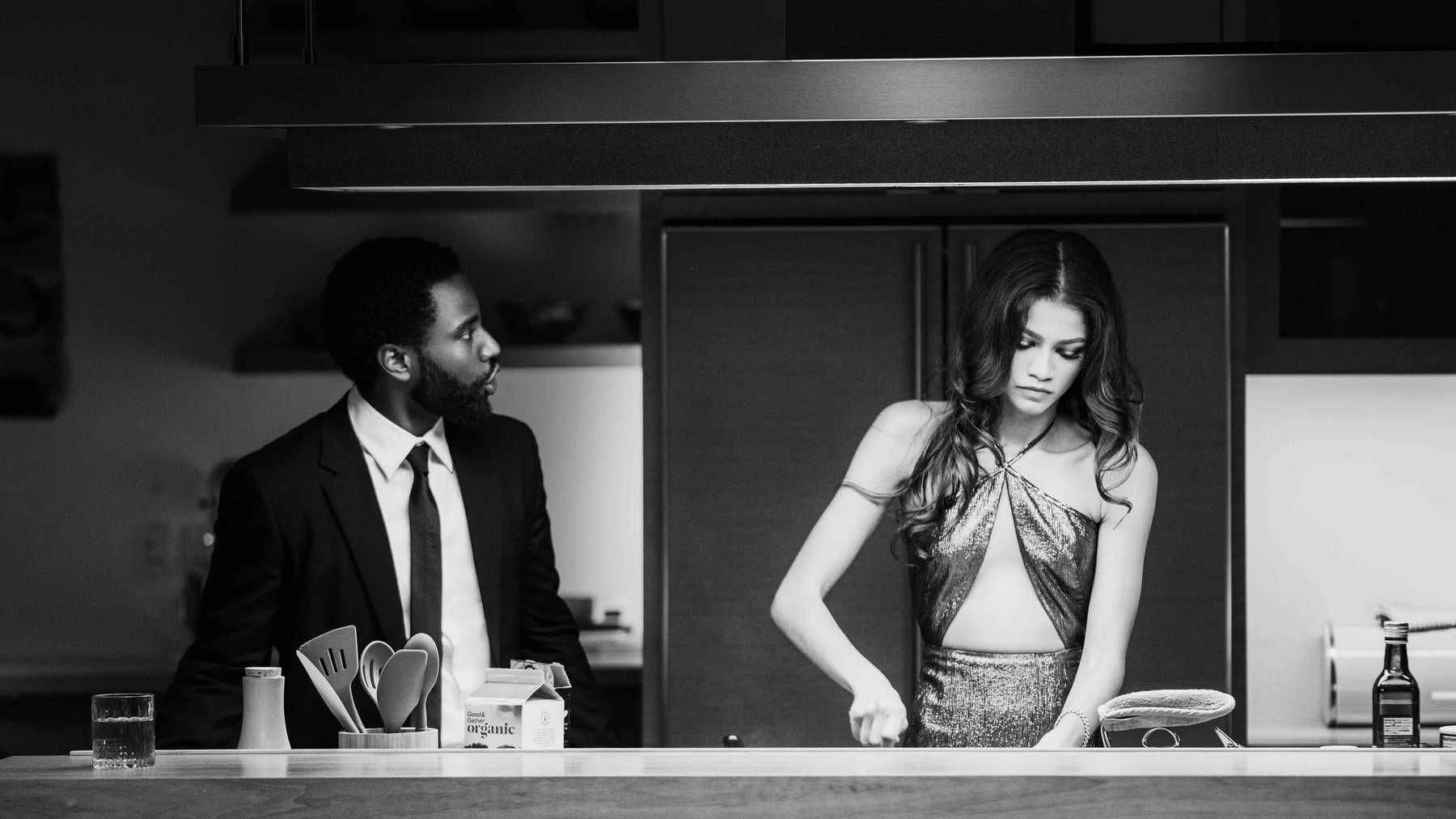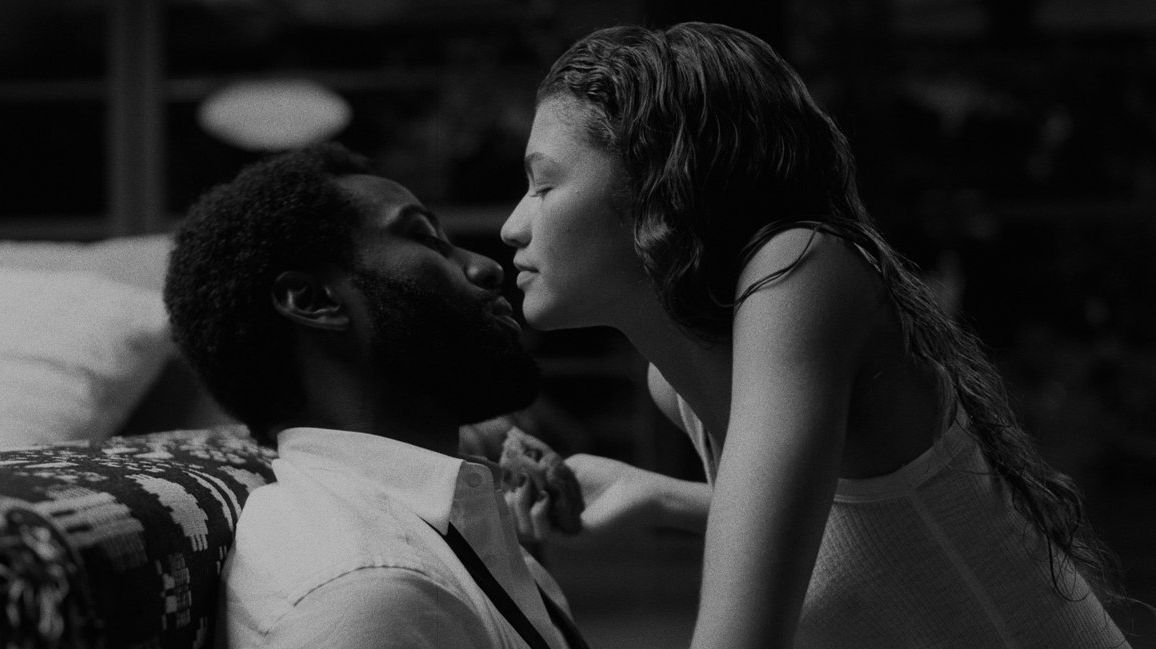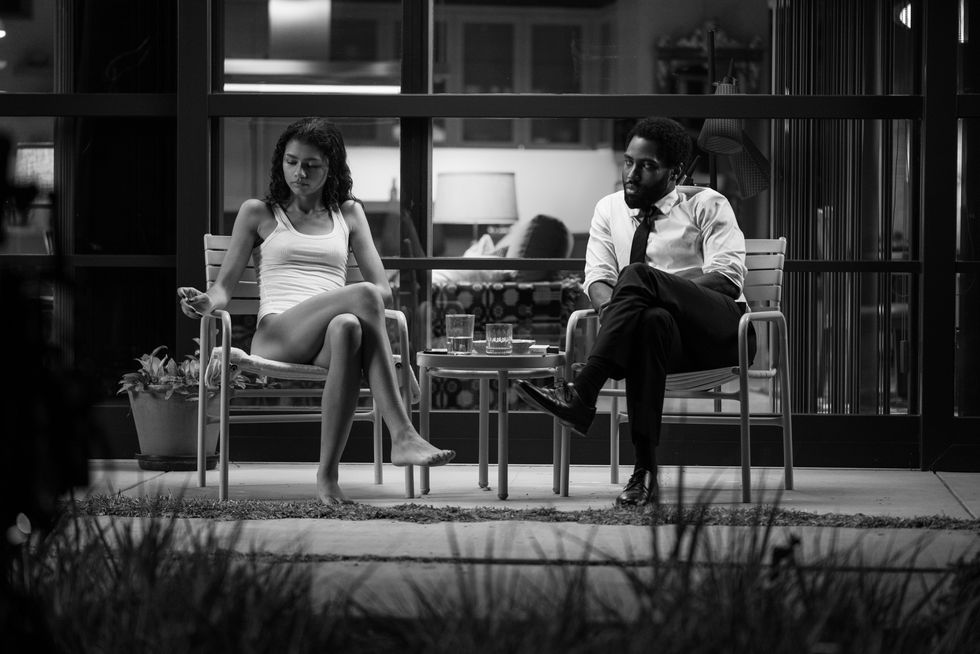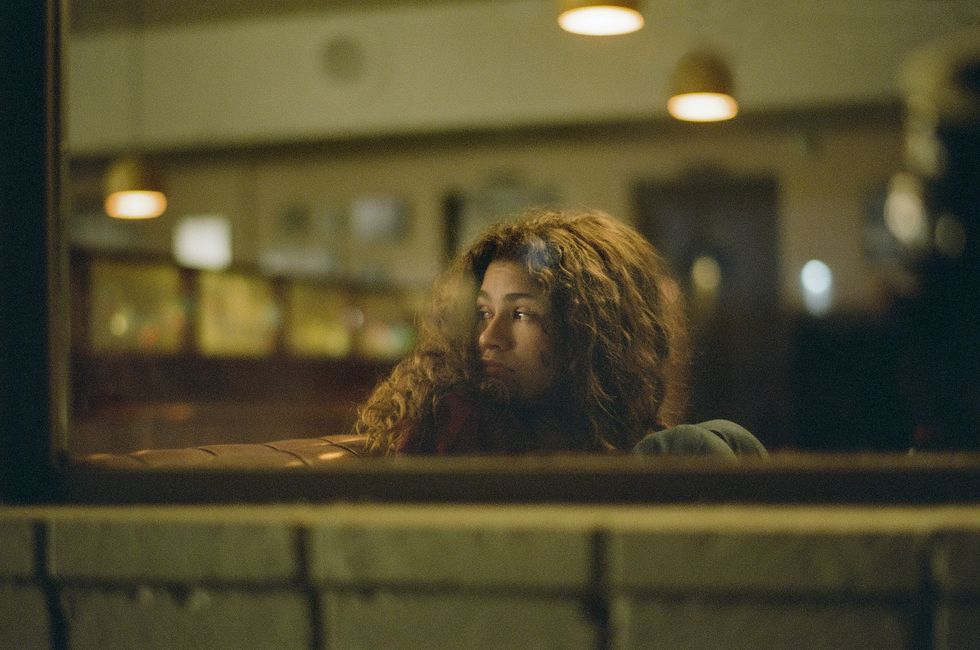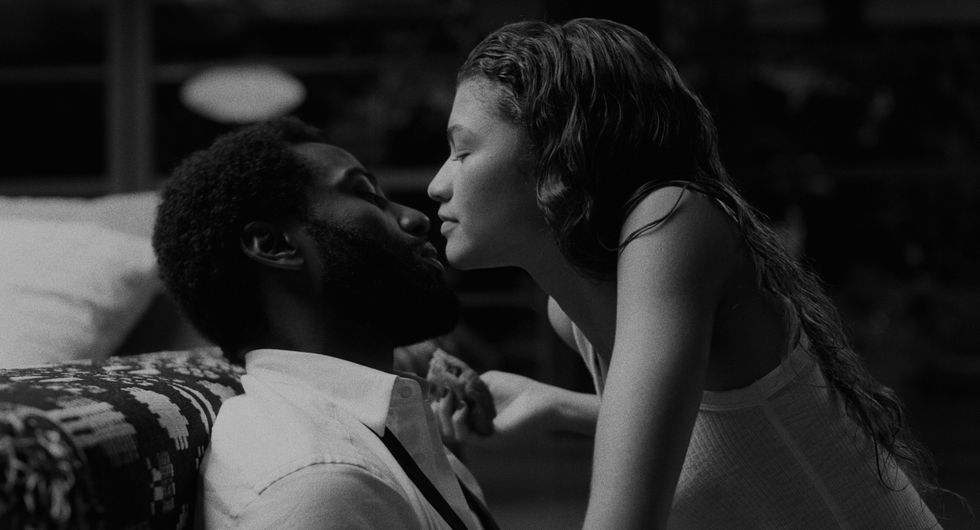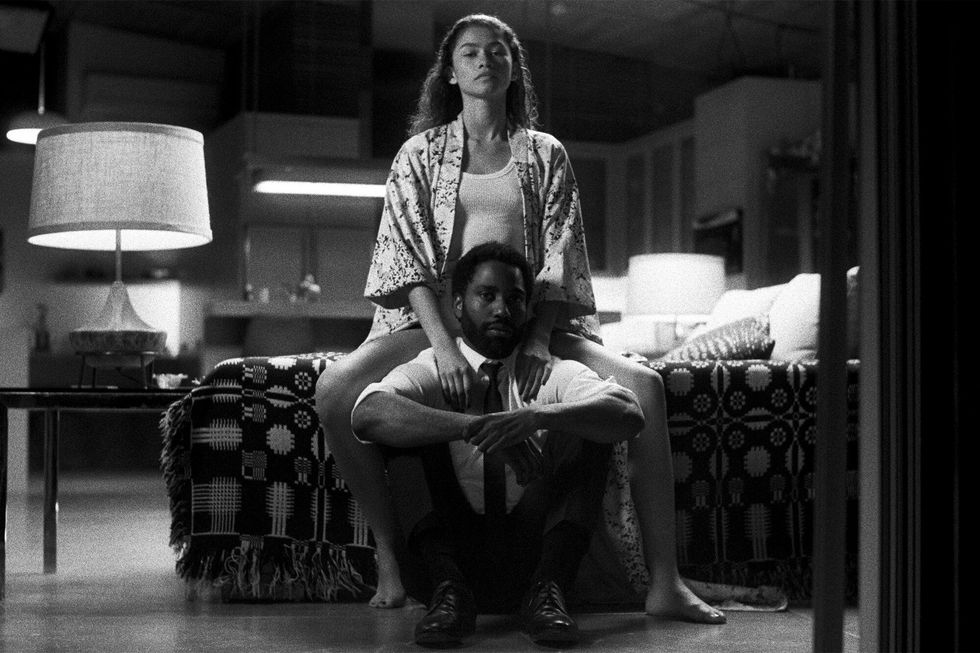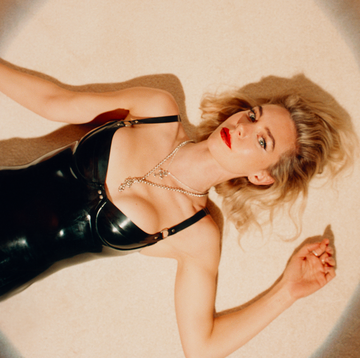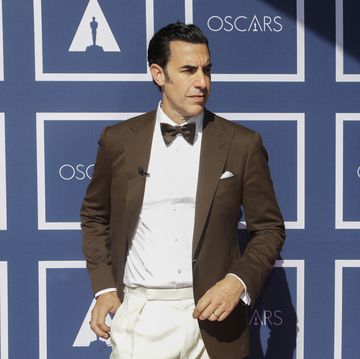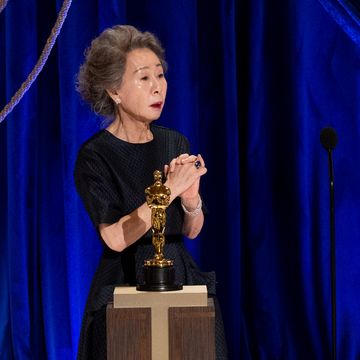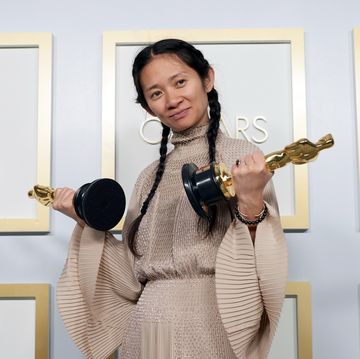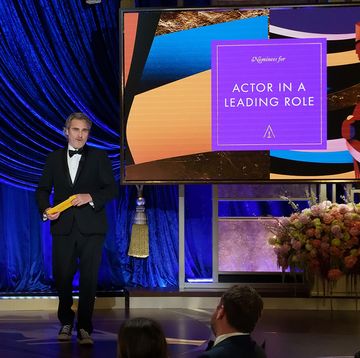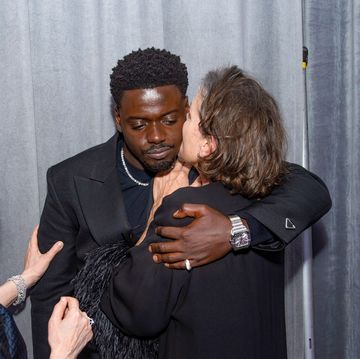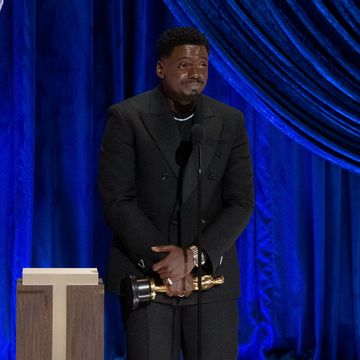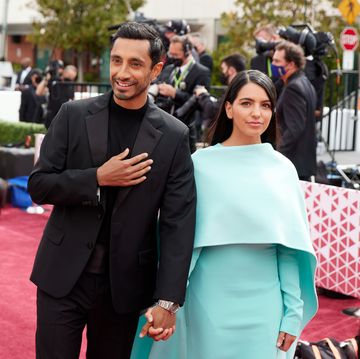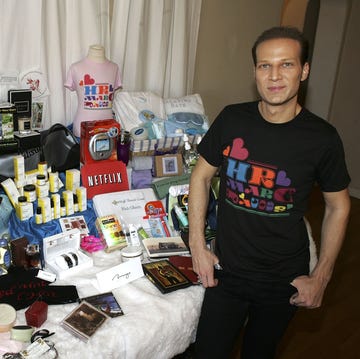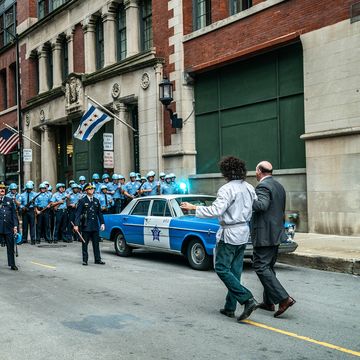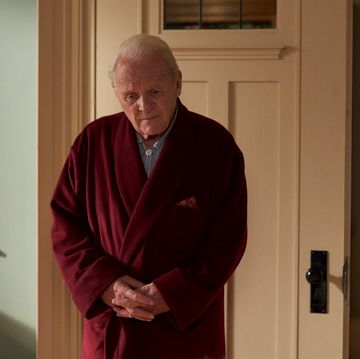Last year, when the pandemic started taking out blockbusters one by one, and films either halted production or kicked their release dates on and on, Zendaya called up Euphoria director Sam Levinson and asked if, somehow, they could shoot a movie in her house.
The end result of that phone call, as well as many script revisions and Covid tests, is Malcolm & Marie, the story of one evening in which a couple return home from a movie premiere and an epic, hours-long argument ensues. The story was inspired by Levinson forgetting to thank his wife at the premiere of his own movie, something he made sure to do when we spoke on Zoom earlier this month.
Levinson is best known for HBO's Euphoria, a study of adolescence which leans into the shocking and sad moments of growing up, and the series for which Zendaya won a historic Emmy last year for lead character Rue.
Malcolm & Marie places the audience in the middle of the fray as the couple exchange petty insults and deeper lashings in a debate over authenticity, respect, ownership and the nature of criticism. Malcolm becomes enraged about a review – admittedly a good one –which is published that night, and launches into a tirade about how the "white lady at the LA Times" does not understand him, or his work. It has since been questioned whether Levinson is alluding to Katie Walsh, a 'white lady at the LA Times' who gave his 2018 film Assassination Nation a poor review.
Levinson spoke to Esquire about the backlash to the film's remarks on criticism, the logistics and emotions involved with making art in isolation, and what we mean but don't say in arguments.
Esquire: The film has this sense of claustrophobia which we’ve all been living with, do you think the idea would have come to you if it hadn’t been for the pandemic?
Sam Levinson: Certainly not. I think that because of the restrictions that Covid was forcing upon us we had to reverse engineer this movie and work out the story we could tell in those conditions. So it’s two people, one location, no place to go, not a tonne of costume changes. I think it is unique to the restrictions of the world we were living in at that time.
What other practical logistics were there?
Our Covid protocol, which was pretty strict given how early on in the pandemic this was. We consulted with epidemiologists and doctors to find the most extreme rules and implemented them. We found this ranch in Carmel that had all of these separate units that people could individually quarantine in without coming into contact with one another, and so for the first ten days that’s what we did before we started shooting, while getting tested. There was no script supervisor, no first AD, no real props department, Z was doing her own hair and make-up and there was no schedule. John David, Zendaya, myself and our cinematographer Marcell [Rév] were able to spend those ten days really diving into the material and breaking down every scene and line.
How was it different working with Zendaya compared to Euphoria?
I think we both challenge each other to be better and do better. I’ve always relied on her instincts because I think she’s so smart, not just as an actor but a producer, so it was a very easy process. John David was the first person I thought of. I called him up, read him some pages, and he got excited. It became this ongoing dialogue until the day we arrived and all throughout shooting.
The film stirs up debate about the role of film critics and whether they can determine what the director intended, where did that idea come from?
Well [Malcolm's] a filmmaker and because the film he made is about Marie, even though he doesn’t give her any credit for it, it became an interesting angle to examine their relationship through this piece of art that exists that’s separate from [them]. Malcolm gets such a stellar, glowing review from the critic, but not in the way he wants it to be. It completely unmoors him as a character and gets to the root of his narcissism.
Marie shares the same criticism as the critic for Malcolm’s film, but takes it one step further and says that, 'My problem with you as a filmmaker is my problem with you as a human being’. It gets to this idea that if we’re unable to hear critique then we’re unable to grow as artists and human beings.
Do you think it is a challenging film to review because it’s critical of critics?
I don’t know why because Marie agrees with the critic and that’s why I don’t necessarily know why it would be hard to review in that sense. I’m not sure everyone sees it that way but it’s an absurdist scene at its core. I always go back to the idea that Marie agrees with the critic! I think it’s quite evident that Marie is the gravitational pull of the entire piece and that she is what holds everything together, whether or not she was getting the credit for it.
Their argument always feels like a threat at the door that is going to return, how did you balance that with the more romantic and joyful moments?
It's one of the reasons we decided to shoot it in order so that we were building the tension and then could let the air out a little bit. That there could be a moment that was tender and could provide a little sense of relief, and then suddenly it turns back. Essentially it's this messy debate, [so] we needed to make sure we were taking the narrative in a way that felt like it was heading somewhere. The same thing was true of shooting inside of one place, we needed to let the house unfold so it didn’t feel like we were repeating ourselves.
There’s a point where Malcolm rages about the fact that films by Black directors or about Black people are always seen as being about race. Was that something you had heard from Black filmmakers?
It’s kind of evident in film criticism and history. Do the Right Thing was originally received by certain New York critics at the time as a call to violence, and that Spike Lee didn’t make just a bad film but an irresponsible film, and it shouldn’t be released. You look back and think, ‘Who was right?’. There is this tendency amongst the establishment, and I mean white establishment critics, to categorise things and talk about them in a way that can sometimes speak to their own importance. [Films are] so 'important' that suddenly nobody wants to see [them] because it feels like homework.
Did you have any anxiety about expressing that as a white filmmaker?
No, because I have faith in the collaborative process and in my partners that if I write something that doesn’t feel true, that JD or Z don’t respond to or feel to be honest, that they are going to say something and we’ll work it out. I didn’t have anxiety in that sense because I have too much respect for the collaborative nature of filmmaking.
Did that kind of collaboration lead to improvised moments while filming?
We were doing eleven minute takes that were choreographed in a very specific manner, so naturally there were moments where life and certain ad-libs seeped into the dialogue. Those are the things you’re so grateful for because it gives it that feeling of looseness and life that you’re always trying to find.
The ending is a moment we can't hear having been in the middle of the fight for so long, did you feel it was important to leave things unresolved in a sense?
I like the idea it’s this ongoing conversation about how we express gratitude and respect for the people in our lives that make us better. It's something that either they figure out or don’t, but it’s something we need to be mindful of in all relationships and be cognisant of the work and the partnership of those we love.
This interview has been edited and condensed for clarity
'Malcolm & Marie' is on Netflix now
Like this article? Sign up to our newsletter to get more articles like this delivered straight to your inbox
Need some positivity right now? Subscribe to Esquire now for a hit of style, fitness, culture and advice from the experts
